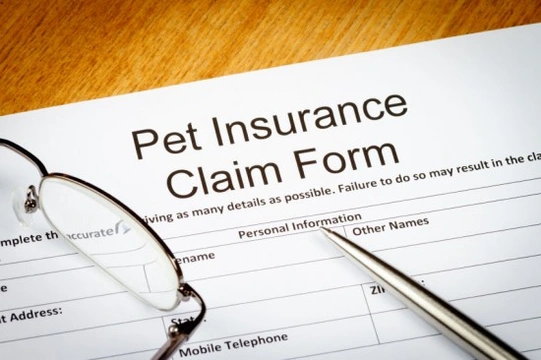
Pet Insurance : The Technicalities
Insurance. It's a legal requirement for your car; it's often a requirement for your mortgage; it's strongly recommended for your furniture and belongings. Yet there is very little information available to the consumer who wants to consider insuring their pet. This is a shame, as vet bills can run into the hundreds or even thousands of pounds, and a good insurance policy can prove to be invaluable to the pet owner. So read on for an explanation of some of the technicalities - it might help you to decide how best to protect your pet in an uncertain future.
Lifetime Condition Cover
It is only if you've experienced other pet insurance policies that you will really understand just how good Lifetime Condition Cover is. Without Lifetime Condition Cover, if your pet were to get an illness or condition that would affect them long term, you might get a nasty surprise - most insurance policies will only cover your pet for the first 12 months of their condition. After that, the financial responsibility would rest squarely on your shoulders. And, as with health insurance for people, it is considerably harder - and more expensive - to insure a pet which has already diagnosed with a condition. However, with Lifetime Condition Cover, the cost would continue to be paid far beyond that initial 12 months - providing, of course, that you kept up the payment of the premiums.
Third Party Liability
Nobody likes to think of their pet as causing harm or damage to other people or property. But your beloved pet is still an animal - and animals can do unpredictable things. Your pet might run across a road, causing a car accident for which you, its owner, would ultimately be responsible. Or perhaps you own a big, friendly dog - which could cause significant damage to someone, just by jumping up and being friendly. As such, an insurance policy which offers third party liability can be well worth the money. The law is extremely severe in its treatment of dangerous animals - especially dogs. In 1991 the Dangerous Dogs Act was passed, which meant that should a dog be 'dangerously out of control' in a public area, the person in charge of the dog would be held criminally responsible. 'Dangerously out of control' does not necessarily mean that the dog would have to actually have harmed somebody. Instead, if there is a suspicion that the dog could cause harm, the owner could be prosecuted just for that. Third party liability, then, basically means that pet owners are financially protected in the event that their dog is involved in an incident which causes, or could cause, an accident, an injury or an illness to someone. The owner would also be protected against the compensation costs that they might incur, should a case be brought against them.
If Your Pet Were to Go Missing
Some pet insurance policies include automatic registration onto the National Pet Database. This is an invaluable resource for the unlikely - and unwelcome - event that your pet should go missing. Upon registration, you will be issued with a unique pet ID number through which, should you ever need to, you would be able to trace the whereabouts of your pet. You would simply log on to the missing pet pages and register your pet as missing, confident in the knowledge that anyone who viewed these pages would be alerted to the fact that your pet was missing - and the photos and extra details that you could post would help get your pet safely back to you. Other insurers might not include this registration - but might have other measures in place for if your pet were to go missing. This might include the payment for local advertising or the payment of a reward to help you get your pet back safely. And although you might not want to think in these terms, some insurers and policies would also pay something towards the initial purchase price of your pet, in the event that these measures do not lead to your pet's return.
Other Benefits that Might be Available
With some policies, if you were to go into hospital for an extended length of time you would be covered to place your pet in a cattery or a boarding kennel. Again, this is an eventuality that you might not consider relevant - but the fact that you could be confident in your pet's care at a time when you are not available might, at some stage, be invaluable to you. Some policies offer a holiday cancellation policy, whereby if you need to cancel a booked holiday due to a pet's emergency surgery, you can reclaim the holiday cancellation costs. And some insurers even provide helplines for you and your pet-related issues, including services which can locate the nearest veterinary facility to you if you should need them whilst on holiday. Each of the above points should help you see that pet insurance can help you immeasurably in financial, practical and emotional matters. As such, you might consider it to be a real investment. If so, your next step is to find an insurer which suits your needs -and the needs of your pets! Online comparison websites, just like those that you would use when getting car or home insurance, can get a series of quotes within minutes - and can help you see which policies cover which aspects of your pet's requirements. Alternatively, you might find suitable insurance with your local vet - so get looking now, and you - and your pet - will rest easily in the future.
Pet Insurance Comparison
Pets4Homes has searched for the best pet insurance deals and compiled a pet insurance comparison table for you to find the best deal.



